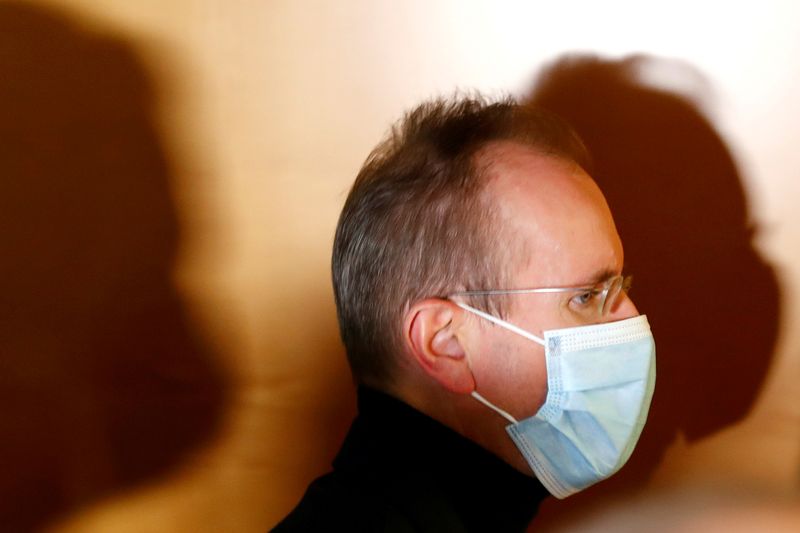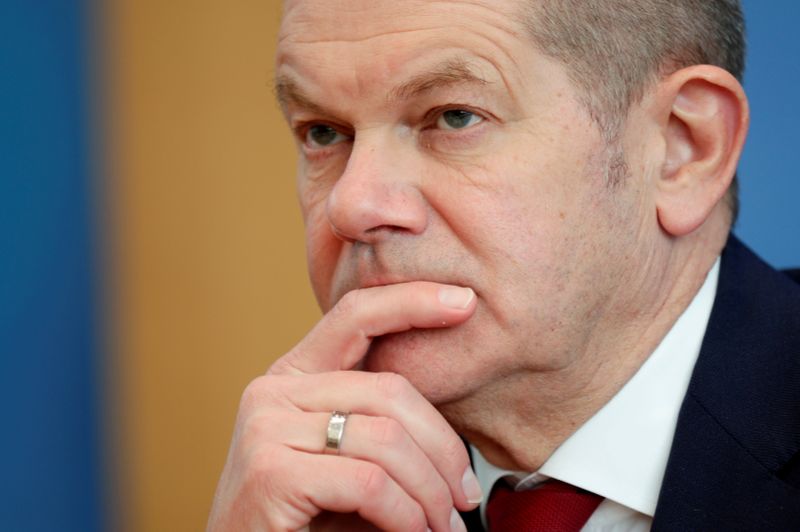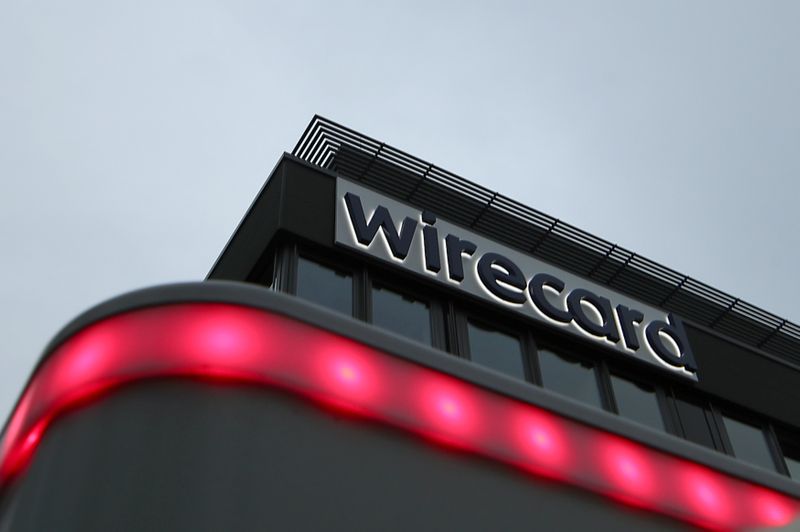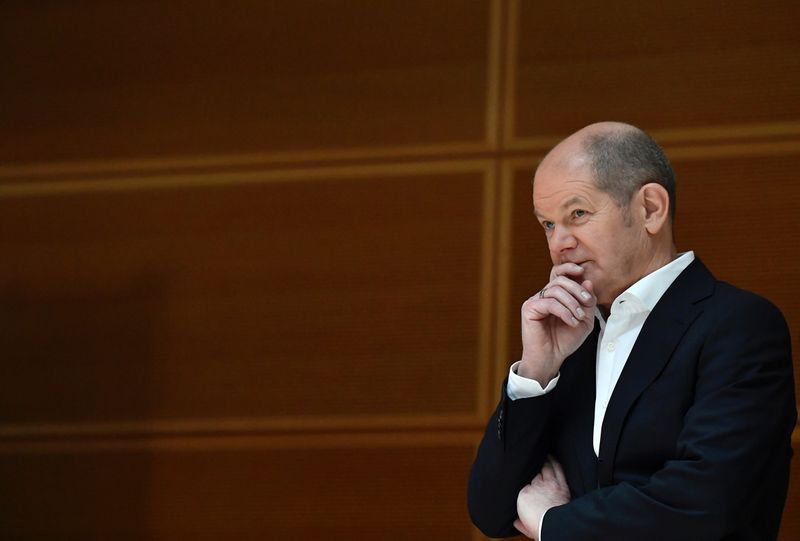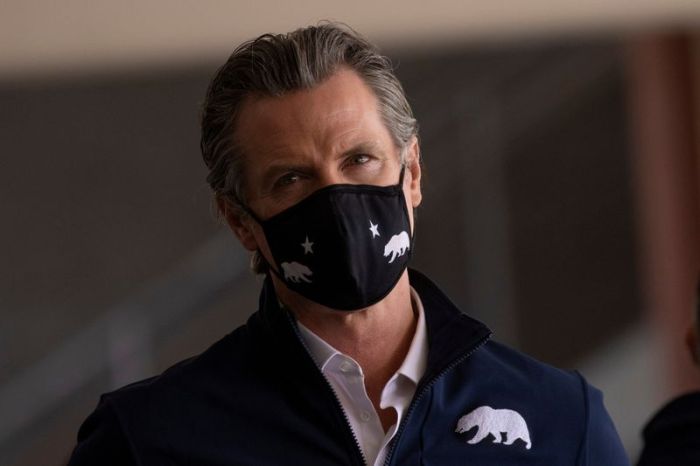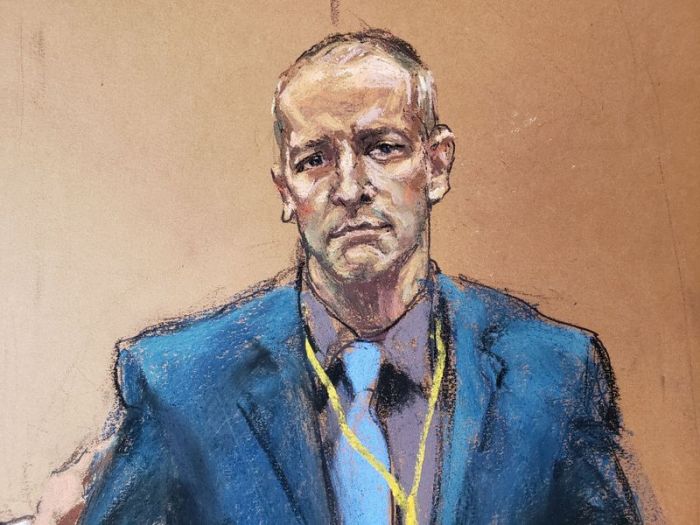FRANKFURT (Reuters) – The German government examined the possibility of bailing out Wirecard just three days before it collapsed, according to documents seen by Reuters showing that officials were blindsided by the country’s biggest post-war fraud scandal.
The payment company filed for insolvency on June 25 last year, owing creditors almost $4 billion, after disclosing a 1.9 billion euro ($2.3 billion) hole in its accounts that its auditor EY said was the result of a sophisticated global fraud.
The documents provide previously unreported details of the ministry’s exploration of using pandemic rescue funds to bail out Wirecard shortly before its implosion last summer, and demonstrate that officials misjudged the scandal.
On June 22, just hours after the company revealed the 1.9 billion euros in its accounts probably “do not exist”, Joerg Kukies, a deputy finance minister, sent a nine-page memo to Finance Minister Olaf Scholz which played down concerns that the company was in imminent peril and outlined a plan to rescue it with funds from state bank KfW.
“A bank run could put Wirecard in liquidity difficulties,” officials wrote. “It is not currently expected that Wirecard’s creditors … will feed it to the wolves.”
The documents also provide previously unreported details about how Wirecard representatives and German officials had worked closely to promote the company’s overseas expansion.
The finance ministry, Scholz and the government declined to comment, beyond one official saying the support given to the company abroad was “within the usual framework of our business diplomacy”. German officials have previously said Wirecard did not receive any special treatment, and Reuters has no independent evidence that it did.
The trove includes thousands of pages of emails, chat messages and memos provided by German government ministries to a parliamentary inquiry probing the company’s collapse.
The implosion of a company once worth $28 billion, and seen as a national success story, led to German lawmakers accusing the government and regulators of failing to heed investors who had since 2016 alleged accounting regularities at the firm.
Lawmakers from the inquiry will question Scholz and Chancellor Angela Merkel about the government’s handling of the scandal next month.
Scholz – referred to as “M” in correspondence among finance ministry staff – is seeking to succeed Merkel as German leader in elections in September when she leaves office. He has responded to the Wirecard scandal by giving regulators more powers to spot and investigate misconduct.
In June 2020, matters at Wirecard were rapidly spinning out of control. The company announced a delay to its earnings statement, its chief executive resigned and its chief operating officer was suspended.
On June 22, at 2:48 a.m., the company revealed the 1.9 billion euros were missing from its accounts.
Hours later that same morning, email traffic shows that Scholz’s deputy Kukies, who was weighing whether German airline Lufthansa should receive a pandemic bailout from KfW, asked colleagues to also urgently examine whether Wirecard could get funds.
“An initial assessment is to be included in an M briefing document, which should be with M this evening,” an aide to Kukies wrote on his behalf.
In the assessment, a document for M marked “very urgent” and “confidential”, Kukies and his staff, who weren’t individually named, outlined to Scholz the importance of Wirecard in processing payments, including for supermarket giant Aldi.
While acknowledging its problems, they suggested Wirecard’s business, which included a bank, was sound and that it was unlikely to go bust immediately.
“The press reports that Wirecard’s operating business is doing well despite the coronavirus crisis and despite the mis-steps,” the document said. It did not elaborate on the mis-steps.
The government dropped the idea of a bailout in the following days, in part because of questions about whether Wirecard’s business was sustainable in the long-term, the documents show.
It was “very unlikely” that the ministry’s external consultants “would confirm that there is an economically viable business model”, the same document to M said.
‘GOVERNMENT STOOD BY WIRECARD’
Danyal Bayaz and Matthias Hauer, two German lawmakers who are part of the inquiry into the scandal, told Reuters that their investigation would examine the finance ministry’s exploration of a bailout for Wirecard, as well as the government’s lobbying to aid the company’s expansion in China.
These episodes, they said, illustrated the government’s misguided willingness to support Wirecard and its refusal to take seriously the allegations made by its critics, including short-sellers who published a research report in February 2016 alleging fraud and money-laundering at the company.
Former Wirecard CEO Markus Braun is in jail awaiting trial on fraud charges while German police are conducting an international search for another former senior executive, Jan Marsalek, whom they accuse of “fraud in the billions” and have issued an arrest warrant for.
“The German government stood by Wirecard. Scholz bears political responsibility,” Bayaz said.
Jens Zimmermann, a lawmaker from Scholz’s SPD party, said it was understandable that officials, facing the possible failure of both Lufthansa and Wirecard, were worried about the stability of the financial sector and felt it was responsible to explore all options.
In terms of lobbying, Wolfgang Schmidt, a close confidant and deputy to Scholz, said in testimony to parliamentarians investigating Wirecard’s collapse: “It is quite normal for the government to regularly champion the economic interests of German companies in other countries.”
‘APPRECIATE YOUR ENDORSEMENT’
Inquiry lawmakers Bayaz and Hauer said they were concerned that government support for Wirecard continued even after red flags were raised about the company.
In February 2019, Germany’s financial regulator BaFin told the finance ministry that it had ordered an inquiry into Wirecard’s accounting, and in April, BaFin fined Wirecard 1.5 million euros for failing to promptly file financial accounts.
Yet on June 22 2019, Schmidt took a phone call from a U.S.-based consultant for Wirecard, Ulf Gartzke of the corporate advisory firm Spitzberg, according to the documents and Schmidt’s testimony to the inquiry in December last year.
The topic was “Project Heron” – Wirecard’s plans to take over the payment firm in China, Allscore, which needed approval from Chinese authorities. Gartzke asked Schmidt to approach Chinese officials over Wirecard’s plans.
Schmidt said in his testimony that he asked Gartzke to write something for him in English. That same day, Gartzke sent an email to Schmidt attaching a draft letter in English, which was seen by Reuters.
“We would appreciate your endorsement of the above initiative and hope that you can extend your support to Wirecard AG in their plans to enter the Chinese market,” the draft said.
Schmidt said in his testimony that he “reformulated” this mail, without elaborating on what that meant, and sent it to a Chinese official. Hauer, the parliamentarian, said he saw the final letter and it was “nearly identical”.
Schmidt said this was part of the usual process of helping big companies abroad. Gartzke didn’t respond to a request for comment.
China’s central bank, foreign ministry and State Council Information Office did not respond to requests for comment.
Wirecard announced an agreement to take over Allscore in November that year, though the deal was not completed before Wirecard’s collapse. Allscore could not be reached for comment.
(Additional reporting by Patricia Uhlig; Writing by John O’Donnell; Editing by Pravin Char)

